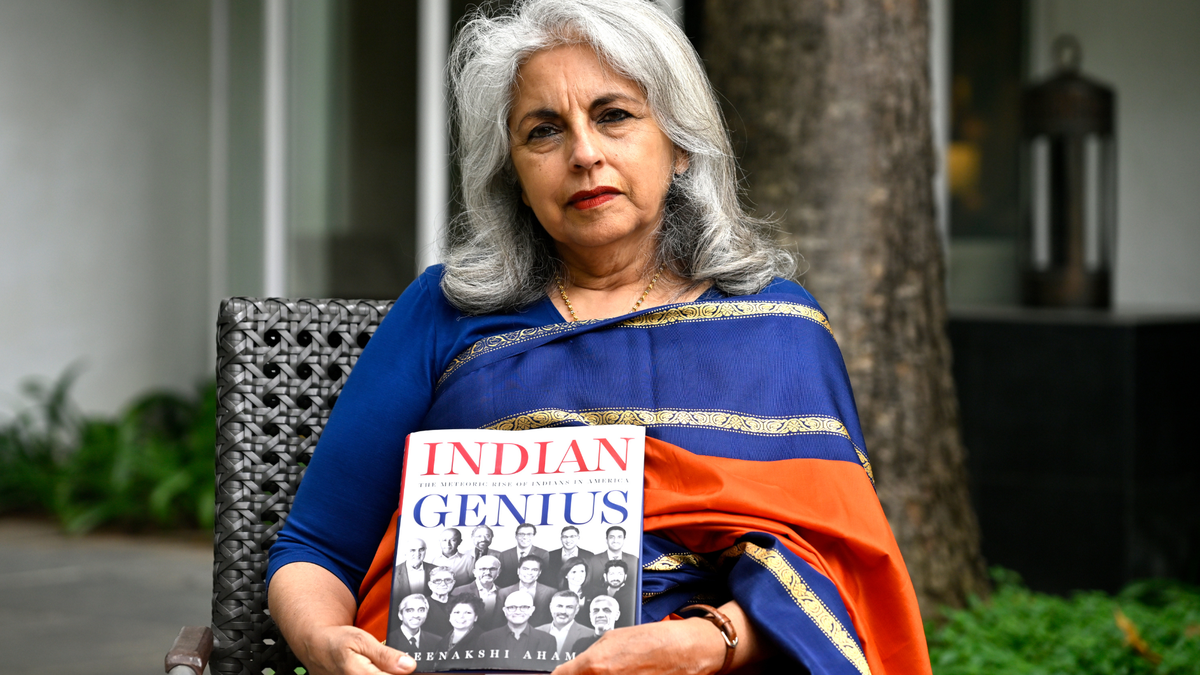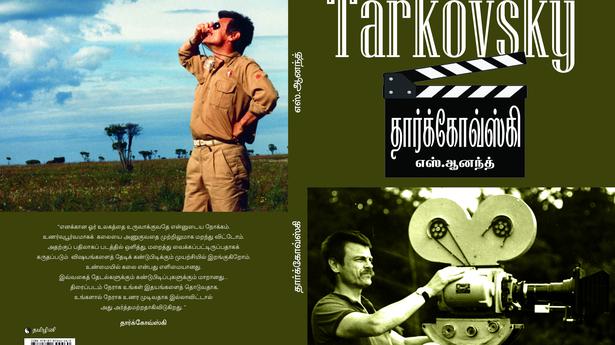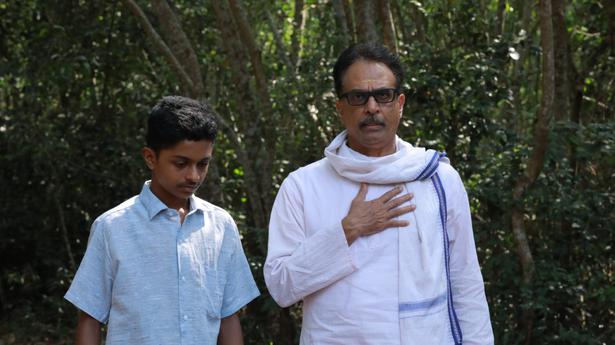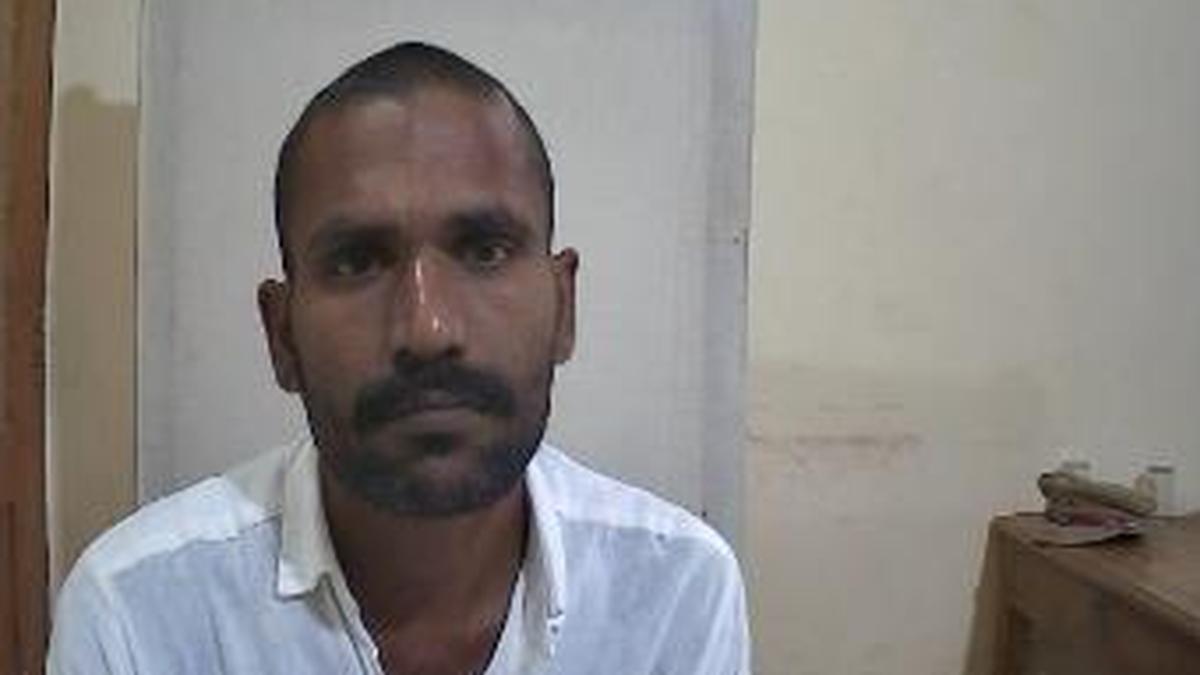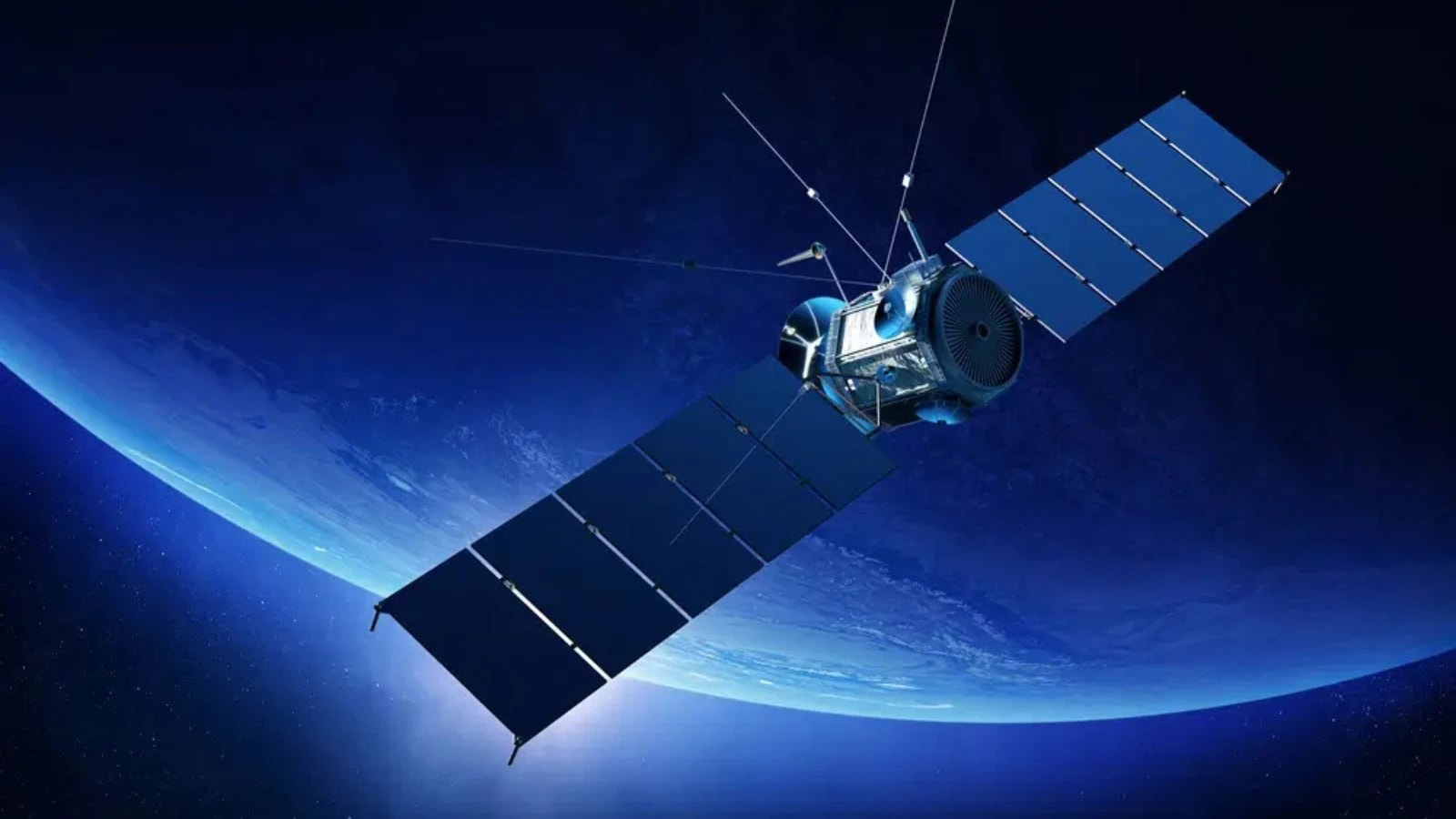Meenakshi Ahamed with a copy of Indian Genius
| Photo Credit: Akhila Easwaran
The 2024 U.S. elections threw up many surprises, but they also saw the Indian-American community come into its own — with a record six Indian-Americans being elected to Congress for what’s now called the ‘Samosa Caucus’. Also, many from the community, including Vivek Ramaswamy and Kash Patel are among President Donald Trump’s top nominees for positions in the administration.
Journalist Meenakshi Ahamed’s latest book Indian Genius: The Meteoric Rise of Indians in America is a look at successful Indians in a number of spheres, with exclusive interviews with them. Edited excerpts from an interview.
Is this election a coming of age of the Indian American community on the American political landscape?
Oh, I definitely think that the Indians have ‘arrived’. In 2020, 99 Indian-origin Americans ran for elected office up and down the ballots. Not just Congress or Senate, but also state assembly seats, council seats, and local elections. That was a pretty big phenomena and we now have six congressmen elected. We had one senator, Kamala Harris, who was partially Indian. When Biden was vice president, he was the first one to celebrate Diwali, and it has now become an official holiday in New York and several other states. This is now an indication of not only the acceptance of Indians, but Indian culture into the mainstream.
At the same time, it does seem as if there is a door closing for new immigrants into the U.S. Trump has promised mass deportations.
If Kamala Harris had won and become president, a lot of people were saying about my book, Indian Genius, that everyone would be talking about how many Indians have risen in America. But now it is equally important, because there’s a MAGA [Make America Great Again] fight going on within the Republican Party about immigration, where you have Elon Musk and the tech [business leaders] who want to continue the H-1B visa programme and bring in technically proficient people from India and other places. On the other hand, you have the conservative sort of Steve Bannon crowd, who have said things like, ‘No, America was built by white Americans, and we don’t need Indian invaders.’ And so it’ll be interesting to see where the chips finally fall.
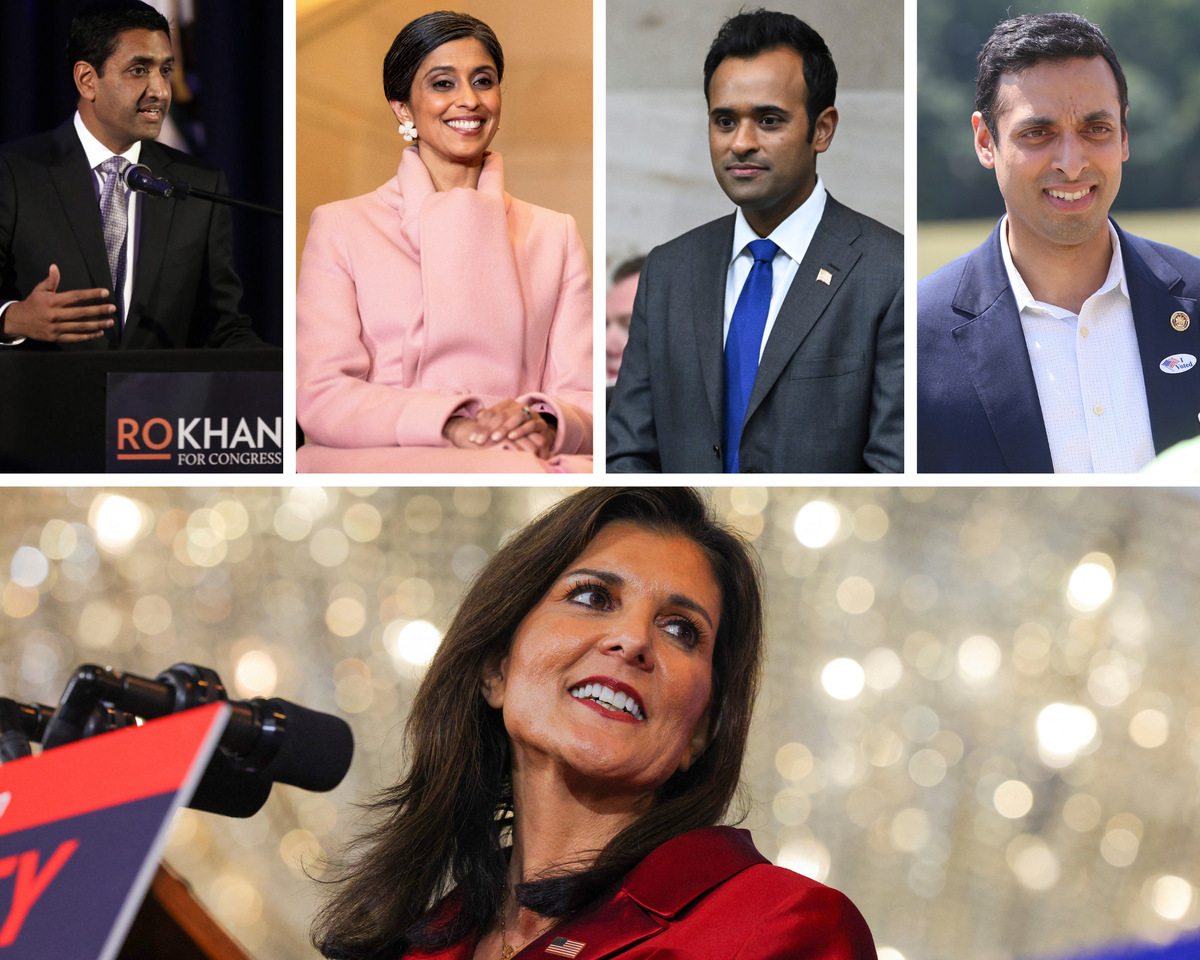
Influential Indian Americans: (Clockwise from top left) Ro Khanna, U.S. representative from California; Second Lady Usha Vance; Vivek Ramaswamy, American entrepreneur and politician; Suhas Subramanyam, U.S. Representative from Virginia; and Nikki Haley, former governor of South Carolina
Your book makes the point that there have been waves of anti-immigrant feeling from a century ago when Indians couldn’t even become U.S. citizens. How have they overcome these battles for acceptance?
As my book points out, discrimination is nothing new in America. When the Irish came in, they were discriminated against. When the Italians came in, they faced discrimination. And so did the Jews. But they all ended up becoming mainstream. Indians began to migrate in big numbers only in the 1960s. One factor was that president Johnson passed the Medicare Act, giving millions of Americans access to health care. Except, the American medical system didn’t have enough doctors. India was a prime place [to recruit from] because [prime minister] Nehru had invested in medical institutes. Excellent doctors were coming out of there, and they spoke English. Another factor that helped Silicon Valley was that Russia launched Sputnik [the first artificial satellite], and America thought it was going to lose the arms race against the Soviet Union in the Cold War. And so they went out and started recruiting engineers. That is when people like [businessmen] Kanwal Rekhi and Vinod Khosla came in, and others like them flooded into Silicon Valley.
What is the Eight Dollar Club?
That includes me! India had a shortage of foreign exchange back in the 60s, when it was a socialist country. When we left to study abroad, we were only allowed to exchange up to $8. So, you came to the U.S. with $8 in your pocket. This meant you had to have someone at the other end picking you up, taking you to where you had to go, because the fare to your university was more.
You’ve broken up your book into three kinds of Indian immigrants — the techies, the healers, as you call doctors, and the influencers. Why did it take so long for Indian Americans to break into this area of public affairs, policy and politics?
It really hasn’t taken them that long, if you think about it. Most [Indians] came after 1965 and it takes a generation to have economic security. So, the first generation is busy making money, then the second generation are the children, and they grow up with certain comforts, and they can afford to think about other careers and give back. They don’t want to just do medicine or tech like their parents. So, they went into law like Neal Katyal, who has argued more cases now in front of the Supreme Court than any other minority person, and he really sees himself as a complete and total American.
Meenakshi Ahamed
| Photo Credit:
Akhila Easwaran
In 2024, there was Kamala Harris, and Usha Vance as part of the presidential race. What about 2028? Do you foresee a face-off between two people of Indian American origin, Ro Khanna vs Nikki Haley?
It’s entirely possible. If Donald Trump wasn’t running, Nikki Haley had a very good chance. She was a serious candidate, got 30% of the Republican vote, and certainly got him worried. [Politician and lawyer] Ro Khanna is very thoughtful, an intellectual, and he is definitely ambitious. He does think about whether he should run for president, and I wouldn’t be surprised if he runs in 2028.
Do you think that the U.S. is ready for a president of Indian origin?
I’m not sure. There will certainly be a segment of the population that will not be able to tolerate it, but I think there’s another 45% that it wouldn’t bother at all, as long as they were smart and a good candidate. My worry about Trump 2.0 is that he really changed the culture of the U.S. when he was president, in the sense that it became more divided. I worry that an unfettered Trump might damage the country culturally in ways that will have very long lasting repercussions, and that might also impact the Indian community negatively.
Published – January 24, 2025 11:18 am IST


